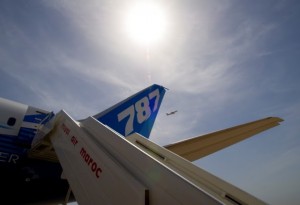Blouin News
by Michael Lerner in Africa
French aerospace firm Daher will open a third manufacturing plant in Morocco next year, L’Usine Nouvelle reported on Monday. The $16.26 million compound will be one of several new additions to come in the near future as Morocco’s aerospace industry blossoms.
In 2014 the Moroccan government launched an Industrial Acceleration Plan, aimed at boosting the country’s economy and creating a new, modernized industrial sector. The plan is expected to create 500,000 industrial jobs through 2020. And the aerospace industry features prominently in that plan. Early last year, a CNN report estimated that approximately 20,000 more trained personnel, mostly machinists and technicians, would be required in the next four years, and the industry will need to up its manufacturing capabilities in order to produce more complex parts.
Thales Group will begin construction on a metal 3D printing center in Morocco this year. The firm says it will be fully operational by 2018 and “will significantly drive Morocco’s aerospace manufacturing capabilities forward.” Other aerospace firms like Bombardier, Latécoère, and Stelia have also joined the bandwagon with major Morocco investment plans.
The country has several major advantages that make it very attractive for this kind of FDI. It is very close to Europe, with coastal ports and air connections. It has cheap labor compared to Western countries, pro-investment government policies (including the Tangier Exportation Free Zone), and — last but not least — political stability.
And Morocco will be blurring the line between the foreign aerospace industry and its own military production, with a helping hand from Saudi Arabia. On December 16 the two kingdoms signed an agreement for military and technical cooperation, which will entail Riyadh financing a $22 billion military-industrial project in Morocco. The North African country wants to reduce its reliance on foreign military imports, and earn an important role in the lucrative international defense industry. Saudi Arabia, meanwhile, wants to shore up its influence in North Africa, especially with a fellow Sunni monarchy.
The more that Morocco establishes itself as a safe place for foreign firms to do business, and as the pool of educated, skilled Moroccan workers grows, the faster the country’s momentum gathers. But the kingdom must remain vigilant against terrorism (particularly against Western targets in-country), because that is the one fear that could put a quick end to the FDI party.








